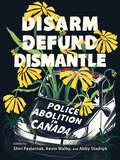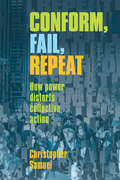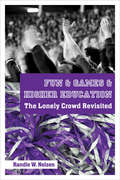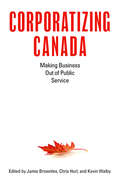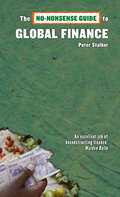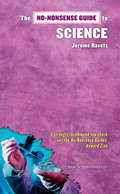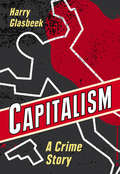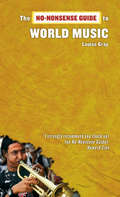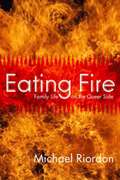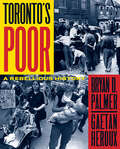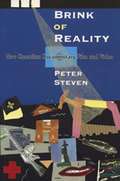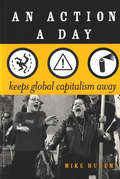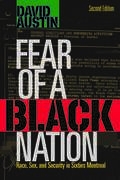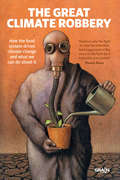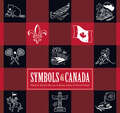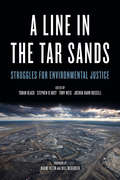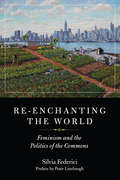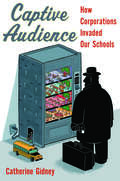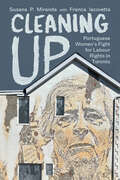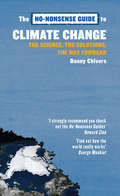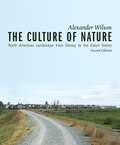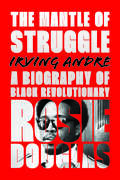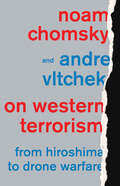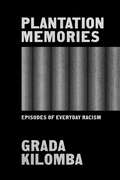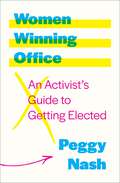- Table View
- List View
Disarm, Defund, Dismantle: Police Abolition in Canada
by Shiri Pasternak Kevin Walby Abby StadnykCanadian laws are just, the police uphold the rule of law and treat everyone equally, and without the police, communities would descend into chaos and disorder. These entrenched myths, rooted in settler-colonial logic, work to obscure a hard truth: the police do not keep us safe. This edited collection brings together writing from a range of activists and scholars, whose words are rooted in experience and solidarity with those putting their lives on the line to fight for police abolition in Canada. Together, they imagine a different world—one in which police power is eroded and dissolved forever, one in which it is possible to respond to distress and harm with assistance and care.
Conform, Fail, Repeat: How Power Distorts Collective Action
by Christopher SamuelAnti-globalization activists have done little to slow capitalism’s global march. Many of the gains made by decades of identity-based movements have been limited to privileged subgroups. The lesson of these movements is clear: struggle for change is essential, but the direction of change matters considerably. Like movements of the past, current social movements such as Black Lives Matter, Idle No More, and the growing anti-Trump movement, must navigate a path between reformism and radicalism, pragmatism and idealism, capture and independence. In Conform, Fail, Repeat, Christopher Samuel uses Pierre Bourdieu’s central “thinking tools” to show how power and domination force movements into a no-win choice between conformity and failure. With special attention to North American LGBTQ politics and the G20 protests in Toronto, Conform, Fail, Repeat shows how Bourdieu’s work can give movement observers as well as participants new tools for tracking and avoiding the pitfalls of conformity and failure.
Fun & Games & Higher Educatione’: The Lonely Crowd Revisited
by Randle W. NelsenFun & Games & Higher Education ranges from Wayne’s World to hot-rodding, from automobility to the popular phenomenon know as the tailgate party, from German sociologist George Simmel to Canadian Media Guru Marshall McLuhan–all in the interests in exploring North American obsession with play-and particularly the intersection between education, work, and leisure.
Corporatizing Canada: Making Business out of Public Service
by Jamie Brownlee Chris Hurl Kevin WalbyFrom schools to hospitals, from utilities to food banks, over the past thirty years corporatization has transformed the public sector in Canada. Economic elites take control of public institutions and use business metrics to evaluate their performance, transforming public programs into corporate revenue streams. Senior managers use corporate methodology to set priorities in social services and create “market-friendly” public sector cultures. Even social activist organizations increasingly look and act like multinational corporations while non-governmental organizations pursue partnerships with the same corporations they ostensibly oppose. Corporatizing Canada critically examines how corporatization has been implemented in different ways across the Canadian public sector and warns us of the threat that neoliberal corporatization poses to democratic decision-making and the public at large.
No-Nonsense Guide to Global Finance (No-Nonsense Guides #8)
by Peter Stalker"Meltdown," "crisis," "downturn," and the dreaded "R-word": recession. These words have migrated from business sections to headline news. From barter to coins, from the origins of banking to today's credit crunch, this highly topical book explores cash, borrowing, and lending, and delves into the dark side of the global financial system. But as we teeter on the brink of a global depression, space develops for new thinking. From doing away with tax havens, putting teeth into regulation, and taxing currency transactions, this book makes suggestions for a fresh start and argues that another (financial) world is possible.
No-Nonsense Guide to Science (No-Nonsense Guides #21)
by Jerome RavetzScience is still the great intellectual adventure, but now it is also seen as an instrument of profit, power, and privilege. Wrongly used, it might yet make the 21st century our last.To make sense of all this, we need to let go of old ideas and assumptions. In the No-Nonsense Guide to Science, Jerome Ravetz introduces the “post-normal” way of thinking about science. We are to transcend the old simplistic ideas of perfect certainty and objectivity in science–they have failed to protect people and the environment when science has gone wrong and they have enabled flat, dogmatic teaching in our schools. We must now accept that value-loading, uncertainty, and ignorance are very real parts of science, and that citizens must participate in the policies that shape its evolution. The book also includes a refreshing new look at the history of science, and concludes with a series of questions that anyone can use to start their own exploration of the present and future of science.
Capitalism: How Law Shelters Shareholders And Coddles Capitalism
by Harry GlasbeekA mugger to a stranger, “Give me your wallet or I will beat you to pulp!” It is a crime. An employer says to a worker: “Adding lung-saving ventilation will reduce my profit. Give me back some of your wages and I will let you keep your lungs!” This is not a crime. Our assumptions about the world condition us to see these situations as legally different from one another. But what if we, the critics of corporate capitalism, instead insisted on taking the spirit of law, rather than its letter, seriously? It would then be possible to describe many of the daily practices of capitalists and their corporations as criminal in nature, even if not always criminal by the letter and formality of law. In Capitalism: A Crime Story, Harry Glasbeek makes the case that if the rules and doctrines of liberal law were applied as they should be according to law’s own pronouncements and methodology, corporate capitalism would be much harder to defend.
No-Nonsense Guide to World Music (No-Nonsense Guides #31)
by Louise Gray“World music” is an awkward phrase. Used to describe the hugely multifaceted nature of a range of, typically, non-English language popular musics from the world over, it’s a tag that throws up as many problems as it does solutions. Louise Gray’s No-Nonsense Guide to World Music attempts to go behind the phrase to explore the reasons for the contemporary interest in world music: who listens to it and why? Through chapters that focus on specific areas of music, such as rembetika, fado, trance music and new folk, it explores the genres that have emerged from marginalized communities, music from conflict zones, and music as a form of escapism.
Eating Fire: Family Life on the Queer Side
by Michael RiordonEating Fire follows in the steps of Riordon’s popular 1996 book Out our way, on gay and lesbian life in the country (BTL, 1996). This new set of tales examines the range in living patterns and relationships among queer families across Canada. Eating Fire illuminates the rich diversity in which people negotiate their personal and public identities. As in all his writing and radio work, Riordon brings to this book a subtle, direct, and vivid style. For Eating Fire he travelled widely, engaging in significant new research and speaking with hundreds of fascinating people. The resulting book is wanted and needed in classrooms, within queer communities, and among everyone hungry for knowledge about the wide range of Canadian families.
Toronto’s Poor: A Rebellious History
by Bryan D. Palmer Gaétan HérouxToronto’s Poor reveals the long and too often forgotten history of poor people’s resistance. It details how people without housing, people living in poverty, and unemployed people have struggled to survive and secure food and shelter in the wake of the many panics, downturns, recessions, and depressions that punctuate the years from the 1830s to the present. Written by a historian of the working class and a poor people’s activist, this is a rebellious book that links past and present in an almost two-hundred year story of struggle and resistance. It is about men, women, and children relegated to lives of desperation by an uncaring system, and how they have refused to be defeated. In that refusal, and in winning better conditions for themselves, Toronto’s poor create the possibility of a new kind of society, one ordered not by acquisition and individual advance, but by appreciations of collective rights and responsibilities.
Brink of Reality: New Canadian Documentary Film and Video
by Peter StevenIn Brink of Reality, Peter Steven examines the convergence of video-art and social-issue documentary, from the 1940s to the present. No other book has explored contemporary Canadian documentary so thoroughly, or provided as broad a view of the state of the art in the 1990s.
An Action A Day: Keeps Global Capitalism Away
by Mike Hudema“An Action A Day Keeps Global Capitalism Away,” according to Mike Hudema, describing his action guide for the 21st century. This lively, challenging, and decidedly fun book is designed for activists and concerned citizens who want to change the world. Hudema introduces readers to a variety of issues, including social action, organizing, theatrical action, civil disobedience, and using the media.The book contains fifty-two tried and tested actions, one for every week. Each action includes a rationale–what you need to pull it off, and examples of where it could be used. From Radical Cheerleading, to Fishing in the Sewers, and Gas Mask Car Shopping, there’s something for everybody.
Fear of a Black Nation: Race, Sex, and Security in Sixties Montreal
by David AustinIn the 1960s, Montreal was a hotbed of radical politics that attracted Black and Caribbean figures such as C.L.R. James, Walter Rodney, Mariam Makeba, Stokely Carmichael, Rocky Jones, and Édouard Glissant. It was also a place where the ideas of Frantz Fanon, Aimé Césaire, and Malcolm X circulated alongside those of Karl Marx, Jean-Paul Sartre, and Simone de Beauvoir. During this period of global upheaval and heightened Canadian and Quebec nationalism, Montreal became a central site of Black and Caribbean radical politics. Situating Canada within the Black radical tradition and its Caribbean radical counterpart, Fear of a Black Nation paints a history of Montreal and the Black activists who lived in, sojourned in, or visited the city and agitated for change. Drawing on Saidiya Hartman’s conception of slavery’s afterlife and what David Austin describes as biosexuality – a deeply embedded fear of Black self-organization and interracial solidarity – Fear of a Black Nation argues that the policing and surveillance of Black lives today is tied to the racial, including sexual, codes and practices and the discipline and punishment associated with slavery. As meditation on Black radical politics and state security surveillance and repression, Fear of a Black Nation combines theoretical and philosophical inquiry with literary, oral, and archival sources to reflect on Black political organizing. In reflecting on Black self-organization and historic events such as the Congress of Black Writers and the Sir George Williams Affair, the book ultimately poses the question: what can past freedom struggles teach us about the struggle for freedom today? Featuring two new interviews with the author and a new preface, this expanded second edition enriches the political and theoretical conversation on Black organising and movement building in Canada and internationally. As the Black Lives Matter and abolition movements today popularize calls to disarm and defund the police and to abolish prisons, Fear of a Black Nation provides an invaluable reflection on the policing of Black activism and a compelling political analysis of social movements and freedom struggles that is more relevant now than ever.
The Great Climate Robbery: How the Food System Drives Climate Change and What We Can Do About It
by GRAINThe Great Climate Robbery connects analysis of the food system to larger issues affecting the planet, and link peoples’ struggles over food to climate change. This book will help readers to understand the ways in which corporations control the food system and provide the analysis needed to challenge this control.
Symbols of Canada
by Michael Dawson Catherine Gidney Donald WrightFrom Timbits to totem poles, Canada is boiled down to its syrupy core in symbolic forms that are reproduced not only on t-shirts, television ads, and tattoos but in classrooms, museums, and courtrooms too. They can be found in every home and in every public space. They come in many forms, from objects—like the red-uniformed Mountie, the maple leaf, and the beaver—to concepts—like free healthcare, peacekeeping, and saying “eh?”. But where did these symbols come from, what do they mean, and how have their meanings changed over time? Symbols of Canada gives us the real and surprising truth behind the most iconic Canadian symbols revealing their contentious and often contested histories. With over 100 images, this book thoroughly explores Canada’s true self while highlighting the unexpected twists and turns that have marked each symbol’s history.
A Line in the Tar Sands: Struggles for Environmental Justice
by Black, Toban; D'Arcy, Stephen; Weis, Tony; Kahn Russell, Joshua; Klein, Naomi; McKibben, BillTar sands “development” comes with an enormous environmental and human cost. But tar sands opponents—fighting a powerful international industry—are likened to terrorists; government environmental scientists are muzzled; and public hearings are concealed and rushed. Yet, despite the formidable political and economic power behind the tar sands, many opponents are actively building international networks of resistance, challenging pipeline plans while resisting threats to Indigenous sovereignty and democratic participation. Featuring contributions from Winona LaDuke, Bill McKibben, Naomi Klein, Clayton Thomas-Muller, Harsha Walia, Jeremy Brecher, Crystal Lameman, Melina Laboucan-Massimo, Yves Engler, Cherri Foytlin, Macdonald Stainsby, Yudith Nieto, Greg Albo, Brian Tokar, Jesse Cardinal, Rex Weyler, Jess Worth, and many more. The editors’ proceeds from this book will be donated to frontline grassroots environmental justice groups and campaigns.
Re-enchanting the World: Feminism and the Politics of the Commons
by Silvia FedericiDrawing on rich historical research, Silvia Federici maps the connections between the previous forms of enclosure that occurred with the birth of capitalism and the destruction of the commons and the “new enclosures” at the heart of the present phase of global capitalist accumulation. Considering the commons from a feminist perspective, this collection centers on women and reproductive work as crucial to both our economic survival and the construction of a world free from the hierarchies and divisions capital has planted in the body of the world proletariat. Federici is clear that the commons should not be understood as happy islands in a sea of exploitative relations but rather autonomous spaces from which to challenge the existing capitalist organization of life and labour.
Captive Audience: How Corporations Invaded Our Schools
by Catherine GidneyWhite Spot, a popular BC restaurant chain, solicits hamburger concepts from third and fourth grade students and one of the student’s ideas becomes a feature on the kids’ menu. Home Depot donates playground equipment to an elementary school, and the ribbon-cutting ceremony culminates in a community swathed in corporate swag, temporary tattoos, and a new “Home Depot song” written by a teacher and sung by the children. Kindergarten students return home with a school district-prescribed dental hygiene flyer featuring a maze leading to a tube of Crest toothpaste. Schools receive five cents for each flyer handed to a student. While commercialism has existed in our schools for over a century, the corporate invasion of our schools reached unprecedented heights in the 1990s and 2000s after two decades of federal funding cuts and an increasing tendency to apply business models to the education system. Constant cutbacks have left school trustees, administrators, teachers, and parents with difficult decisions about how to finance programs and support students. Meanwhile, studies on the impact of advertising and consumer culture on children make clear that the effects are harmful both to the individual child and the broader culture. Captive Audience explores this compelling history of branding the classroom in Canada.
Cleaning Up: Portuguese Women’s Fight for Labour Rights in Toronto
by Susana P. MirandaThis fascinating book uncovers the little-known, surprisingly radical history of the Portuguese immigrant women who worked as night-time office cleaners and daytime “cleaning ladies” in postwar Toronto. Drawing on union records, newspapers, and interviews, feminist labour historians Susana P. Miranda and Franca Iacovetta piece together the lives of immigrant women who bucked convention by reshaping domestic labour and by leading union drives, striking for workers’ rights, and taking on corporate capital in the heart of Toronto’s financial district. Despite being sidelined within the labour movement and subjected to harsh working conditions in the commercial cleaning industry, the women forged critical alliances with local activists to shape picket-line culture and make an indelible mark on their communities. Richly detailed and engagingly written, Cleaning Up is an archival treasure about an undersung piece of working-class history in urban North America.
No-Nonsense Guide to Climate Change: The Science, the Solutions, the Way Forward (No-Nonsense Guides #3)
by Danny ChiversJust as the need for action on climate change becomes more urgent and overwhelming, the campaign to deny that humans are causing it has gained more traction. This completely new book meets the skeptics head on, offering a guide to the science, an insight into the politics of climate justice and a clear sense of the way forward. This is an ideal offering for students, academics and anyone interested in the growing issue of society’s impact on climate change and how to make climate justice a reality.
The Culture of Nature: North American Landscape from Disney to Exxon Valdez
by Alexander WilsonSince it was first published in 1991, few books have come close to capturing the depth and breadth of Alexander Wilson’s innovative ecocultural compendium The Culture of Nature. His work was one of the first of its kind to investigate the ideology of the environment, to critique the future according to Disney, and illustrate that the ways we think, teach, talk about, and construct the natural world are as important a terrain as the land itself. Extensively illustrated and meticulously researched, this edition is exquisitely revised and reissued for the Anthropocene.
The Mantle of Struggle: A Biography of Black Revolutionary Rosie Douglas
by Irving AndreRosie Douglas, former prime minister of Dominica, had a life unlike any other modern politician. After leaving home to study agriculture in Canada, he became a member of the young Conservatives, under the Canadian prime minister’s guidance. However, after he moved to Montreal to study political science his politics started to shift. By the late sixties he was an active civil rights supporter and when Black students in Montreal began to protest racism in 1969, he helped lead the sit-in. He was identified as a protest ringleader after the peaceful protest turned into a police riot, and served 18 months in prison. After his deportation from Canada in 1976, having been named a danger to national security, Douglas participated in political movements around the world building global solidarity. He became a leader of the Libyan-based revolutionary group World Mathaba and supported Nelson Mandela’s African National Congress. Once back home in Dominica, he led the movement for Dominica’s full political independence from Great Britain, then served as a senator in the post-independence government, an MP, party leader, and finally prime minister. Relying on family sources, interviews, newspaper articles, government documents, and Douglas’ own articles, letters, and speeches, Irving Andre has drawn a rich and riveting record of this important Black revolutionary.
On Western Terrorism: From Hiroshima to Drone Warfare
by Noam Chomsky Andre VltchekIn On Western Terrorism Noam Chomsky, world-renowned dissident intellectual, discusses Western power and propaganda with filmmaker and investigative journalist Andre Vltchek. The discussion weaves historical narrative with the two men’s personal experiences, which have led them to a life of activism. Beginning with the New York newsstand where Chomsky first began his political education as a teenager, the discussion broadens out to the shifting forms of imperial control and the Western propaganda apparatus. Along the way Chomsky and Vltchek touch upon many countries of which they have personal experience, including Nicaragua, Cuba, China, Chile, and Turkey. A blast of fresh air which blows away the cobwebs of propaganda and deception, On Western Terrorism is a powerful critique of the West’s role in the world and a testament to two lives dedicated to humanism, activism, and the search for knowledge.
Plantation Memories: Episodes of Everyday Racism
by Grada KilombaPlantation Memories is a compilation of episodes of everyday racism written in the form of short psychoanalytical stories. From the question “Where do you come from?” to Hair Politics to the N-word, the book is a strong, eloquent, and elaborate piece that deconstructs the normality of everyday racism and exposes the violence of being placed as the Other. Released at the Berlin International Literature Festival in 2008, soon the book became internationally acclaimed and part of numerous academic curricula. Known for her subversive practice of giving body, voice, and image to her own texts, Grada Kilomba has adapted her book into a staged reading and video installation. Plantation Memories is an important contribution to the global cultural discourse.
Women Winning Office: An Activist’s Guide to Getting Elected
by Peggy NashWhen Peggy Nash first decided to run for elected office, she had no idea where to start, who to contact, or what the rules were. For those who are underrepresented in political life, politics can seem like a secret society designed to shut them out. Women Winning Office is a practical handbook for activist women on how to open doors and take their place in the political process. Find out how to build a team, get nominated, inspire volunteers, and canvass voters. Nash draws on her experience in five federal campaigns, as well as the stories of many inspiring Canadian women who have run for office at all levels of government. Some succeeded; some did not. Some faced difficult and painful experiences. Every one of them would do it again. To make real progressive change, we need to change not only who gets elected in Canada, but how our democracy functions. If you want to find out how to take your desire for a better world into elected office, this book is for you.
